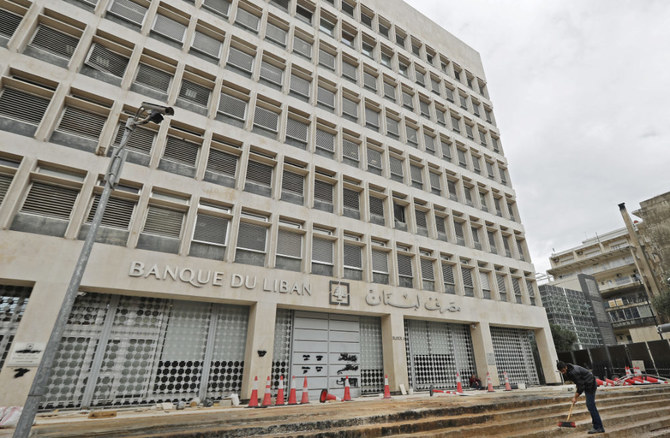BEIRUT: The Association of Banks in Lebanon has warned against “a plan to systematically destroy the banking sector, carried out by a group of no more than 50 mercenaries.”
The association was referring to a group of protesters who set banks alight on Thursday. It released a statement saying: “The funds needed to pay off your deposits are not with the banks, so entering them by force, destroying them, or breaking their contents will not benefit you. You are only harming yourselves and reducing the chances of regaining your rights. The time has come for you to realize who took away your rights and who you should direct your arrows at and pressure to recover them.”
ABL said it was baffled by all the accusations that its strike is contributing to the depreciation of the local currency. “If banks close, they are accused of devaluating the local currency; if they open, they are accused of playing the market.
SPEEDREAD
Lebanese economic bodies denounced the attacks on the banking sector, stressing that everyone needs to act rationally and responsibly to overcome the prevailing crises with the fewest possible losses, and to preserve the rights of depositors.
“The banks deposit their customers’ deposits with the Banque du Liban, in (accordance with) BDL’s circulars and in line with the principles of global banking. These funds were used to support the exchange rate and to finance the state, which then failed to return them. Some parties set out to absolve the state of its obligations and, because of these dealings, banks lost all their private money, which amounted to over $24 billion. Still, banks are accused of seizing deposits and lending them to the BDL (out of) greed.”
The association accused the state of having spent more than $20 billion since 2019 in support of smuggling — by subsidizing materials being illegally taken into Syria — and to maintain an exchange rate of LBP1,500 to the dollar.
It said: “Banks had lent over $55 billion in deposits and are working to recover them in order to return them to the depositors, so most judicial decisions oblige them to collect these debts on the basis of the official exchange rate prior to the collapse — i.e. 1,507 Lebanese pounds to the dollar, or, at best, according to a banker’s draft drawn from the BDL, equal to less than 15 percent of the value of the loan it obtained. So how can banks return the deposits to their customers now?”
One economic observer feared that the banks would be dragged into an open strike, leading to complete closure, following the attacks on various branches, thus putting them in direct confrontation with citizens.
On Saturday, Lebanese economic bodies denounced the attacks on the banking sector, stressing that everyone needs to act rationally and responsibly to overcome the prevailing crises with the fewest possible losses, and to preserve the rights of depositors.
Meanwhile, Hezbollah has announced the opening of a new branch of its Al-Qard Al-Hasan Association, which is subject to US sanctions, in the predominantly Druze and Christian Souk Al-Gharb Aley area, where the party has little to no presence.
Al-Qard Al-Hasan is described as Hezbollah’s financial wing, so the new branch reveals growth in Hezbollah’s financial institutions at the expense of the state’s, which are collapsing.
An economic observer, who asked to remain anonymous, noted that Al-Qard Al-Hasan seems to have benefitted from the banks’ decline and their inability to grant loans, and has stepped in to fill the gap by providing loans in exchange for mortgages of gold or property.
“This association lends money and keeps mortgages until it collects the amount, and, in the event that the customer does not clear the loan, it sells the gold or real estate,” they said.
The association’s files were hacked a year ago and some data was leaked, including information about depositors and borrowers. The leaks showed that the association possesses deposits amounting to around $500 million and had provided loans worth $450 million.
The Al-Qard Al-Hasan Association is not licensed by the BDL, and cannot be pursued or held accountable by the judiciary in the event that a borrower encounters any problems.
Former MP Mustafa Alloush told Arab News: “By opening this new branch, Hezbollah is trying to give the impression that it is non-sectarian and for all people. The fact is, the party does not make profits from this association, as it does from cross-border smuggling, captagon trade, and the collapse of the state.”
He continued: “The state’s hands are tied; what’s left of the state is unable to take decisions unless the constitution is applied and the reforms that Lebanon committed to are implemented.”
Alloush added that banks could benefit from the riots and use them as an excuse to put pressure on the state so it would not be the only one responsible for the loss of people’s deposits, but become a “partner in crime” with the state and the BDL.



























